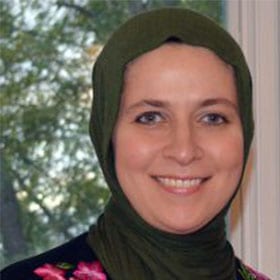Assistant Professor & Graduate Program Director
University of Maryland, Baltimore
FOCUS
A Culture of Health begins by recognizing that health is a human right; and making quality healthcare accessible to all is considered an advocacy floor—not ceiling—to ensure all of us are able to realize our full potential by virtue of our humanity. As a professor of epidemiology and health policy and as graduate program director, Danya’s teaching centers on deepening student and faculty understanding of the role structures of power and capital play in the devaluation of life and in delimiting the health of Black, Indigenous, brown, disabled, and low-income communities nationally and globally. This approach requires restructuring and reimagining of curriculums and pedagogies to better recognize and address the social and political factors that play a predominant role in determining population health and early death. These factors, such as racism and settler-colonialism, have often been entirely erased or misrepresented in our clinical and public health teaching, research, and practice. Because pharmacists are often ignored in health policies more broadly, Danya’s goals also center on amplifying the role pharmacists can (and do!) play in improving community health and health equity.
STRATEGIC INITIATIVE: Pharmacists & Opioid Use Disorder
I am Danya Qato, a Maryland-based pharmacist, epidemiologist, and health services researcher who is committed to advancing health equity. Pharmacists have long been considered the most trusted and accessible of healthcare providers. This public trust has not always translated to visibility of pharmacists in public health decision-making spaces. Pharmacists are uniquely equipped to support more equitable care and better management of patients with opioid use disorder (OUD). The three primary pharmacotherapies for OUD are methadone, buprenorphine, and naltrexone. Unlike methadone, buprenorphine can be picked up at a local pharmacy with a prescription. Methadone for treatment of OUD must be accessed through an opioid treatment program. In predominantly white communities, the availability of prescribers able to prescribe buprenorphine is greater compared to predominantly black communities. In addition, the national issue of pharmacies not adequately stocking buprenorphine, continued stigma/discrimination against patients with OUD, as well as pharmacy distributors limiting supply of buprenorphine has recently received more attention. As part of my initiative as a pharmacist, I aim to contribute to a deeper understanding of OUD and work towards overcoming the barriers that hinder the provision of effective OUD treatment.
MORE ABOUT DANYA
Danya believes in the liberatory possibilities of an equitable and effective public health system. As a pharmacist, epidemiologist, and health services researcher, Danya’s research is focused on understanding the impact of state and federal policies on high-risk medication and substance use, specifically among women and older adults. Her advocacy work is focused on mitigating harm related to substance use, supporting healthcare access for all, and dismantling structures of oppression woven into our current systems of care. Danya is most looking forward to being in community with others who believe in the urgency of this structural and political transformation.
Click here to watch Danya’s Legacy Project video.

